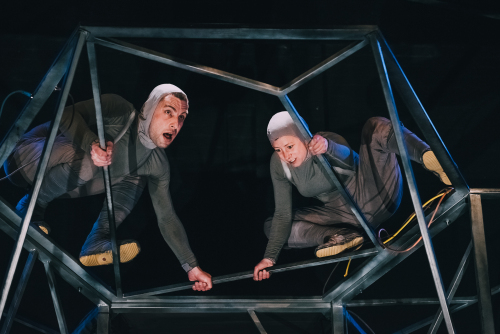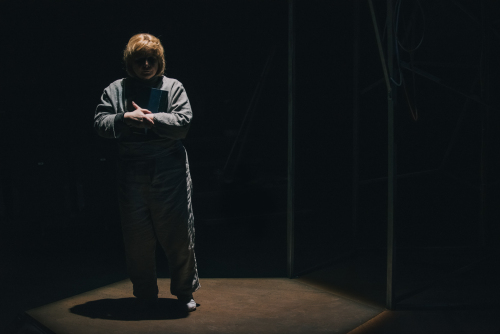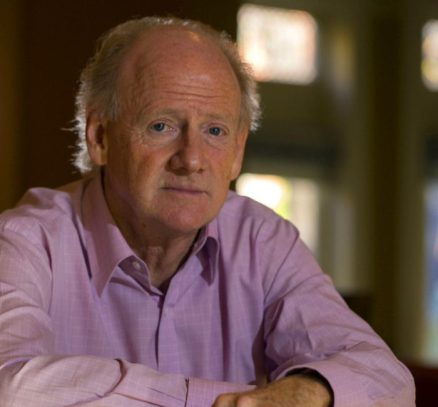Dystopian fiction is starting to feel a little too close to reality lately – and although E.M. Forster’s 1909 short story The Machine Stops is set in a future version of our world, some of the themes – the politics of fear and mankind’s increasing dependence on technology among them – feel disturbingly current more than a century later.
Juliet Forster directs Neil Duffield’s faithful adaptation of the story, in which humanity has retreated underground, unable to continue living on the Earth’s surface. Direct contact between individuals has all but died out; everyone keeps to their own room, exchanging recycled ideas and knowledge with others via video chat and avoiding sunlight, travel or anything that might bring them into physical proximity with other people.
 Photo credit: Ben Bentley
Photo credit: Ben Bentley
Life underground is supported by the Machine, a system invented by humans to supply all their wants and needs. But as time passes, it becomes less obvious who – or what – is really in charge… Only the rebellious Kuno (Rohan Nedd) can see what’s happening, but can he convince his mother Vashti (Ricky Butt) of the danger before the Machine stops?
Pilot Theatre’s chilling production takes place within designer Rhys Jarman’s futuristic metal cage, which develops a life of its own as Maria Gray and Adam Slynn crouch, climb and swing among its cables and wires. Movement director Philippa Vafadari has the two interacting with a mesmerising synchronicity and fluidity, which only falters when the Machine begins to fall into disrepair, its failing condition reflected perfectly – and rather poignantly – in the physical tics and stammering speech of the performers.
Ricky Butt is grim-faced and stubborn as Vashti, refusing to accept the truth about the Machine or the outside world, but also cutting a vulnerable figure as she shambles halfway across the world to visit the son she claims to have no time for (parental responsibilities – and presumably affection – are supposed to cease immediately after a child’s birth). In contrast, Rohan Nedd’s Kuno is full of youthful energy and passion, painting a picture through words and movement so that we can see and feel every second of his illicit trip to the Earth’s surface – and encouraging us, perhaps, to take another look at the surroundings we take for granted. Music by John Foxx and Benge helps complete this picture; the tense, repetitive strains underground contrasting with a crescendo of joyful choral melodies as Kuno explores the outside world.
 Photo credit: Ben Bentley
Photo credit: Ben Bentley
Whether Forster really suspected his story would come true we’ll never know, but there’s no denying the play strikes a chord. In a world where we increasingly choose to communicate through technology instead of face to face, where do we draw the line between convenience and the risk of losing all human contact?
Worse, there’s no suggestion that any of this is the Machine’s doing; humans created the Machine and its rules, not the other way around, and then simply sat back (quite literally) and allowed it to take control and tell them what to believe – and what to fear. In this scenario, which hits a little too close to home, humankind brings about its own destruction… and that, perhaps, is the most terrifying idea of all.
Can’t see the map on iPhone? Try turning your phone to landscape and that should sort it. I don’t know why but I’m working on it…





